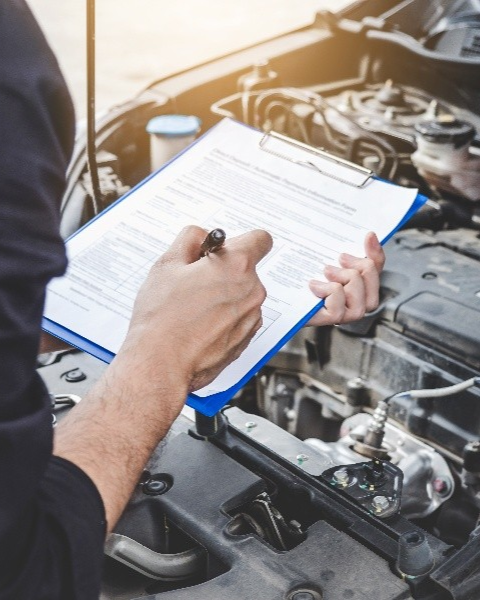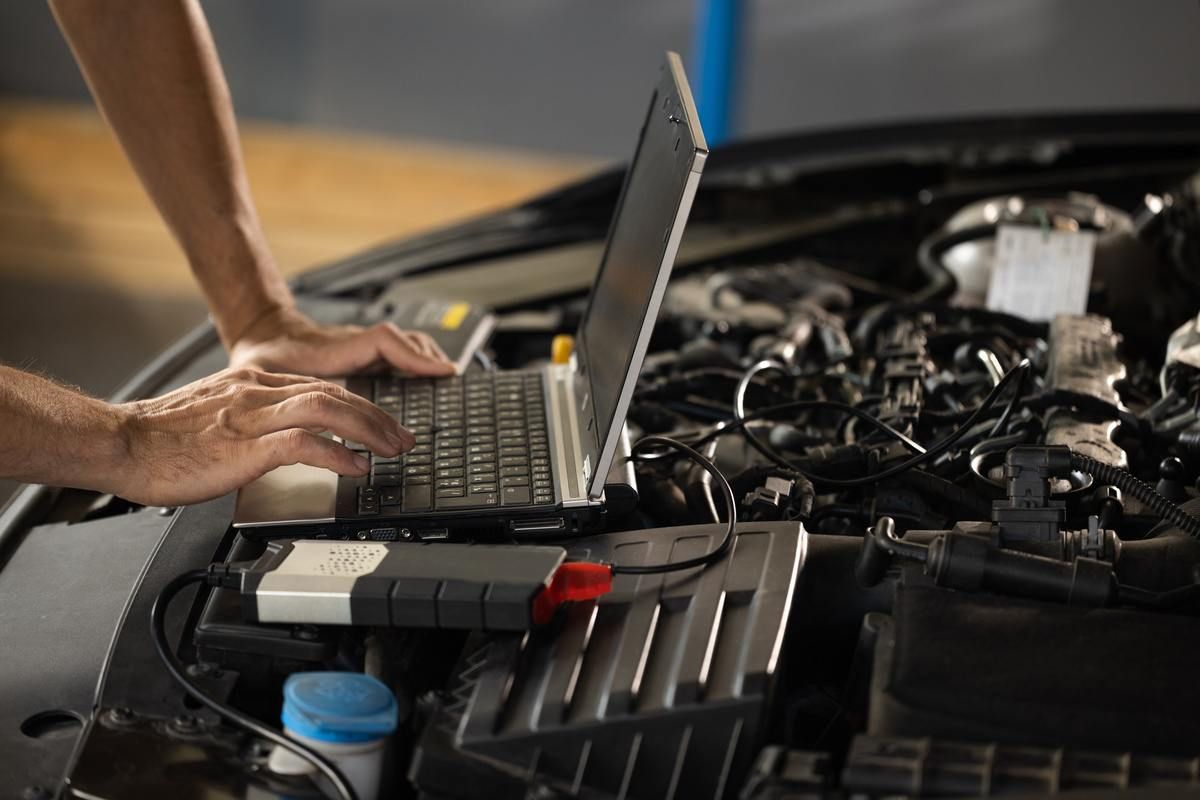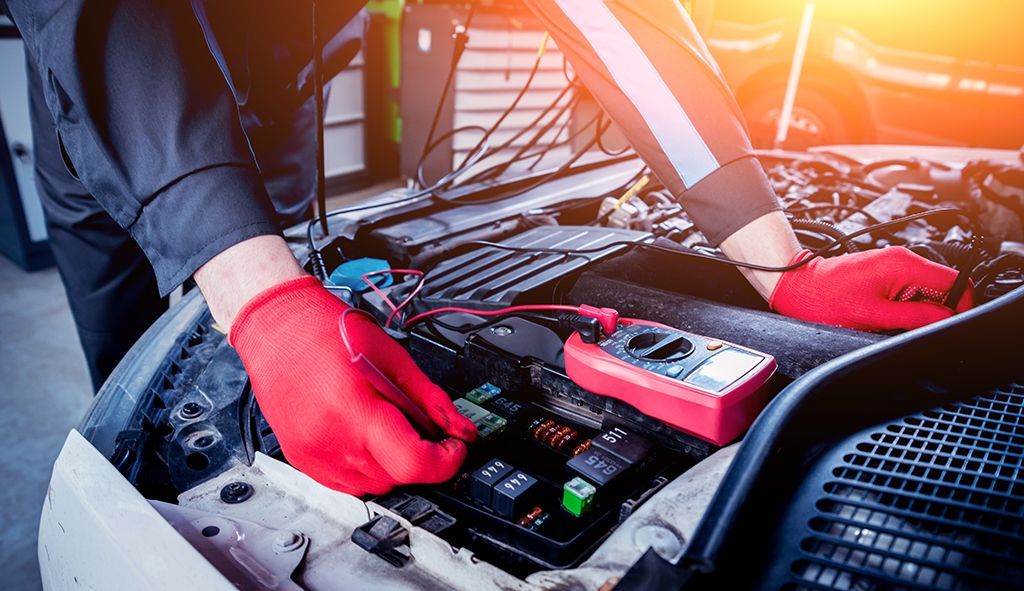By Victor Stewart
•
April 2, 2025
As hybrid vehicles become increasingly popular for their fuel efficiency and environmentally-friendly design, more drivers are enjoying the numerous benefits these cars offer. With reduced emissions and exceptional fuel economy, hybrids are an excellent choice for eco-conscious individuals. However, hybrid vehicles also come with their own unique set of challenges that require specialized knowledge for proper maintenance and repair. That’s where we at Turnage Auto Care Center come in, offering expert services for Hybrid Vehicle Diagnostics in Lexington, SC. In this blog, we’ll dive into the intricacies of hybrid vehicle maintenance and repair, why it’s important to choose the right professionals for the job, and how we can help keep your hybrid in top condition. Whether you’re looking for diagnostics, repairs, or routine maintenance, we’re here to ensure your vehicle continues to perform optimally for years to come. Why Hybrid Vehicle Maintenance is Crucial Hybrid vehicles combine an internal combustion engine with an electric motor, which makes them highly efficient but also more complex than traditional vehicles. This combination of technology brings its own set of maintenance needs, and understanding the importance of regular hybrid vehicle diagnostics is essential to prolonging the lifespan of your vehicle and ensuring it runs at peak performance. 1. Hybrid Systems Are Complex The primary benefit of a hybrid vehicle is its dual system: the gasoline engine and the electric motor. The electric motor works in tandem with the gas engine to increase fuel efficiency and reduce overall emissions. However, hybrid vehicles have intricate systems, such as the hybrid battery, electrical components, and regenerative braking systems, that need careful attention. Without regular diagnostics and maintenance, these systems can suffer from issues that could compromise your vehicle’s performance. 2. Battery Health is Essential One of the most crucial components of any hybrid vehicle is the battery. Unlike traditional cars, hybrid batteries last longer but are more expensive to replace. The hybrid battery is responsible for powering the electric motor and storing energy recovered from braking. Over time, these batteries can degrade, affecting their capacity and efficiency. Regular maintenance can help monitor the health of your battery and alert you to potential problems before they cause major issues. 3. Ensuring Optimal Fuel Efficiency Hybrid vehicles are designed to offer better fuel efficiency compared to their conventional counterparts. However, neglecting maintenance can result in a decrease in performance, which will reduce the efficiency of your hybrid car. Issues with the electrical system, fuel injectors, or exhaust system can all impact your hybrid’s ability to maximize fuel economy. Regular diagnostics can keep your vehicle running as efficiently as it was designed to, helping you avoid high fuel costs. Hybrid Vehicle Diagnostics Hybrid vehicles come with advanced technology that requires specialized equipment to properly diagnose. At Turnage Auto Care Center, we use cutting-edge tools and technology to perform thorough diagnostics on hybrid vehicles. Here are some of the critical areas we focus on when diagnosing and repairing hybrid vehicles: 1. Hybrid Battery Management System The hybrid battery is one of the most expensive components of a hybrid vehicle, and its performance directly impacts the overall efficiency of the car. The battery management system (BMS) controls the charging and discharging of the hybrid battery, ensuring it operates optimally. At Turnage Auto Care Center, we provide Hybrid Vehicle Diagnostics - Lexington, SC to check the BMS for any malfunctions, ensuring your battery is being properly maintained. If your battery is showing signs of reduced capacity or failure, we can provide guidance on repair or replacement options. 2. Inverter and Power Control Module The inverter is responsible for converting the direct current (DC) power from the hybrid battery to alternating current (AC) power used by the electric motor. If this system malfunctions, it can cause significant issues with your vehicle’s hybrid performance. The power control module (PCM) regulates the electric motor’s power and works in conjunction with the inverter. Our diagnostic services include checking the inverter and PCM for any problems that may affect the smooth operation of your hybrid vehicle. 3. Electric Motor and Drive System Hybrid vehicles use electric motors for various tasks, including starting the vehicle, driving at low speeds, and assisting the gasoline engine. These electric motors are responsible for providing smooth acceleration and ensuring that the car runs efficiently. Our technicians are trained to inspect the electric motor and the entire drive system to ensure everything is operating as it should. If there are any issues with these components, timely repairs can prevent costly damage in the future. 4. Regenerative Braking System Hybrid vehicles utilize regenerative braking to recharge the battery while braking, converting kinetic energy into electrical energy. This system is a key feature of hybrids and significantly contributes to their fuel efficiency. If the regenerative braking system malfunctions, it can lead to reduced braking performance and a decrease in fuel efficiency. We offer detailed inspections and repairs to this system, ensuring that it functions effectively and extends the life of your vehicle’s brake components. 5. Charging System and Electrical Components The charging system plays a vital role in maintaining your hybrid battery’s power levels. From the alternator to the power circuits, each electrical component must be functioning correctly to ensure your hybrid runs without interruption. Our Hybrid Vehicle Diagnostics in Lexington, SC includes checking these electrical systems for signs of wear, corrosion, or failure to prevent any unexpected issues. Common Hybrid Vehicle Problems and How to Address Them While hybrid vehicles are designed for efficiency and reliability, they still experience common problems. Many of these issues can be avoided with regular diagnostics and maintenance. Here are some of the most common hybrid vehicle problems and the steps we take at Turnage Auto Care Center to address them: 1. Decreased Battery Performance As hybrid batteries age, their performance may start to decline, leading to reduced fuel efficiency and less overall power. If your hybrid is experiencing this issue, we will conduct a battery diagnostic test to determine whether a battery replacement is necessary. In some cases, we may be able to recalibrate the battery or fix smaller issues to prolong its life. 2. Inverter Failure A malfunctioning inverter can disrupt the power flow between the battery and the electric motor, leading to a lack of acceleration or jerky movements when driving. If the inverter is at fault, we will use specialized diagnostic tools to determine the exact cause and provide the best solution, whether that means repairing or replacing the inverter. 3. Faulty Electric Motor An electric motor failure can leave you stranded or cause significant delays when driving. The issue could be as simple as an electrical short, or it could require more complex repairs. Our technicians are experts in identifying electric motor issues and can perform repairs to restore optimal performance. 4. Excessive Oil Consumption Hybrid vehicles still rely on an internal combustion engine to function, and like all vehicles, they can experience oil consumption problems. If your hybrid is using excessive oil, our diagnostic service will check for oil leaks, problems with the pistons, or any other engine components that could be causing the issue. The Importance of Regular Hybrid Maintenance Maintaining a hybrid vehicle requires ongoing attention and proactive care. Regular maintenance can prevent many of the common issues hybrid vehicles face and help ensure your vehicle continues to run efficiently. At Turnage Auto Care Center, we offer comprehensive hybrid repair services in Lexington, SC, including routine maintenance checks that focus on the specific needs of your hybrid vehicle. Here are some benefits of regular hybrid maintenance: Improved Longevity: Timely repairs and regular check-ups can extend the life of your hybrid vehicle, ensuring it stays on the road longer. Cost Savings: Regular maintenance helps identify small problems before they become costly repairs. By addressing minor issues early, you can save money in the long run. Enhanced Fuel Efficiency: Proper maintenance ensures your hybrid is running at peak performance, helping you maximize fuel economy and minimize emissions. Why Choose Turnage Auto Care Center for Your Hybrid Repair Needs? At Turnage Auto Care Center, we are committed to providing expert services for hybrid vehicles. Our team of technicians is trained in the latest hybrid technology, using state-of-the-art diagnostic tools and techniques to identify and fix issues efficiently. Whether you need routine maintenance, a complex repair, or Hybrid Vehicle Diagnostics - Lexington, SC, we have the skills and experience to keep your vehicle running smoothly. We understand that owning a hybrid vehicle is an investment, and our goal is to help you protect that investment by providing the best hybrid repair and diagnostic services available. When you choose Turnage Auto Care Center, you can trust that your hybrid is in good hands. Final Thoughts Hybrid vehicles are an excellent choice for those who want to reduce their carbon footprint and save on fuel costs. However, the advanced technology in these vehicles requires specialized care to ensure they remain in optimal condition. At Turnage Auto Care Center, we offer expert Hybrid Vehicle Diagnostics - Lexington, SC, and repair services to keep your hybrid running smoothly for years to come. Whether you're dealing with a minor issue or need a comprehensive diagnostic check, our experienced technicians are here to help. For more information about our hybrid repair services or to schedule an appointment, contact us today. Let us help you maintain the performance and efficiency of your hybrid vehicle with precision and care.









